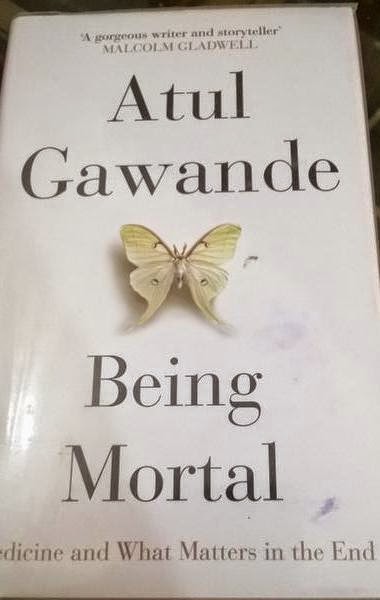
The book left me with mixed feelings. I usually like to complete a book in one go but this is of a different category. The reason is not because it fails to hold attention but actually because it does just that. The ideas that Gawande puts forth compel the reader to think, to introspect, to look at ones own life and family and the decisions one has made or have to make. This demanded that I put the book away to gather my thoughts.
Book Review is not a correct term for the post, I am not really in a position to ‘review’ it. Obviously a lot of hard work has been put in by people much better placed than me in the publishing industry. My Impressions would be a better word, I guess. Anyway here goes…
As the title suggests, the book deals with old age and all that it brings along for the person and people around him*. Aging is much much more than greying hair and wrinkled skin and lost teeth. In fact those are the least of one’s problems. Gawande has drawn extensively on his medical experience to describe how we and the medical world deals with reducing mobility, medical issues like dementia/cardiac/neurological problems etc that are an integral part of growing old. The final chapters deal with cancer and how people react and deal with impending death.
Aging does not discriminate between nationality, gender, financial status or designation. It happens to all and each one faces different changes and our reactions vary from person to person. How do we accept the restrictions that slowly creep upon us? How does the family react? How do the doctors react?
As the author has said, not many doctors take up Geriatrics because its not a glamorous stream nor a highly paying one. Probably not as rewarding in terms of achieving medical goals as well.
What should be the focus of medical management? Should the steps adopted be convenient to the immediate care-giving family members? Should it be to make the individual happy and mentally occupied? Or to enable him to continue a routine that he enjoys and looks forward to? Or keep him well-fed and safe so that his medical parameters are optimum? The latter often means a strictly regimented routine that defeat the previous goals. Often medical interventions are painful, expensive and traumatic for the patient. At times they only delay the inevitable. Are they even worth while then? Who makes these difficult choices?
In India, families still continue to look after the old and infirm and sending them off to old-peoples homes is not common. Yet. Gawande tends to look favourably on this system that too has its drawbacks. He has analysed the rise and fall of the ‘assisted living’ concept and shared results of several studies that affect emotional states of the elderly. Notable among these is a path breaking ‘experiment’ by Bill Thomas to ‘inject’ life into a nursing home.
There exists a dire need to make the twilight years dignified, happy, lively and enjoyable.
The author is brutally frank when describing his feelings when he first ‘met’ death and towards the end of the book describes his father’s final years. He has quoted moving examples of real life people most of them from the USA but those
living in India can easily see similarity in one or many of those.
‘Being Mortal’ is not a book one ‘enjoys’ because it makes the reader uncomfortably aware about the choices they may have made or have to make. It is not light reading.
Will I recommend it? Yes. If nothing, it will spur us to plan for our own old age.
Of course, the best laid plans often do not work because Fate has something else in store.
Have a healthy and happy 2015 folks!
🙂
*For the sake of convenience, I have used a male reference. It can just as well be a ‘her’.
